6 foods and drinks to avoid if you get heartburn
Chocolate and cheese are on the "do not eat" list.
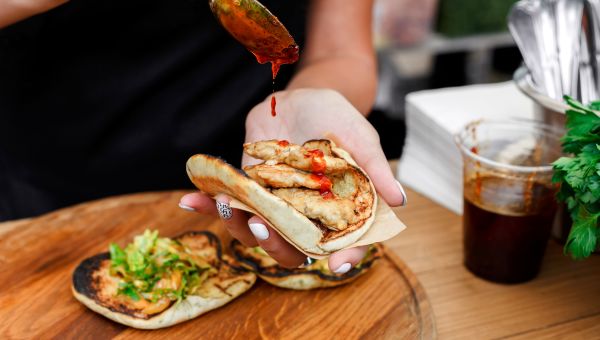
If you experience acid reflux, a condition characterized by a burning pain in your chest, you're not alone. Almost everyone has felt heartburn from time to time. But if you experience frequent heartburn, or other reflux symptoms like a cough, voice changes or excessive saliva, due to obesity, pregnancy or a hiatal hernia, you don’t have to live with the pain. Acid reflux and its most recognizable symptom, heartburn, are treatable, and even preventable.
So, what causes heartburn, anyway? The things you eat and drink travel down the esophagus and pass the lower esophageal sphincter in the stomach. A weakened sphincter allows stomach contents—such as food and stomach acid—to bubble into the esophagus. This causes the sensation we know as heartburn. Obesity, pregnancy and certain medications, like painkillers and drugs used to lower blood pressure, can cause acid reflux. Certain foods and drinks can trigger discomfort, too.
We spoke with Vivek Mittal, MD, a gastroenterologist with Saint Agnes Medical Center in Fresno, California, about some of the worst foods and drinks for heartburn. Unfortunately, some fan favorites, like chocolate, coffee and cheese made the naughty list.
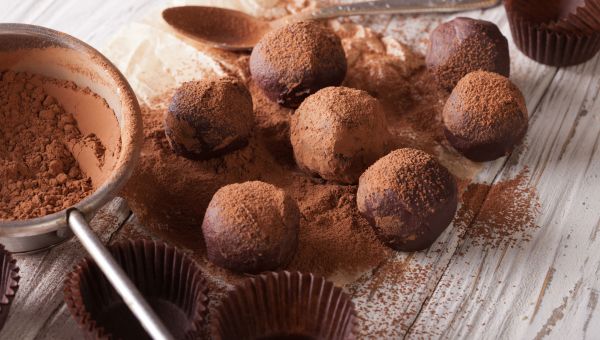
Chocolate
Sweet treats aren't often known for their health benefits, but dark chocolate is an exception. Tasty research suggests cocoa contains some heart-healthy properties. And at just 170 calories per ounce, a morsel seems like a smart dessert choice—unless you experience acid reflux.
For some, chocolate can worsen reflux symptoms, like heartburn. "Certain foods relax the sphincter, the opening between the esophagus and stomach," Dr. Mittal says.
There are likely a number of reasons chocolate doesn’t sit well for some. One possibility is the caffeine content, which can exacerbate symptoms. Chocolate contains more caffeine than you might think at 12 milligrams per ounce. The darker the chocolate, the more caffeine.
Instead of reaching for chocolate, sate your caving for something sweet with a piece of fruit, like a banana or apple, which won't likely leave you uncomfortable.
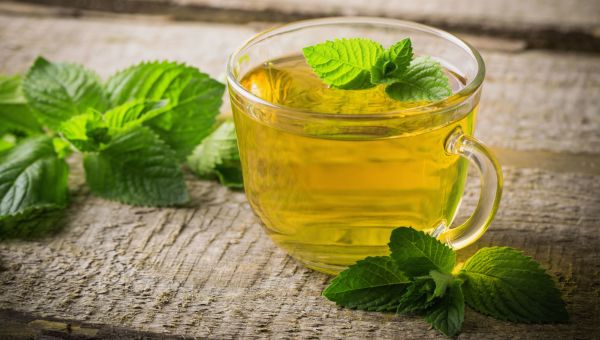
Peppermint
Peppermint, often used to flavor gum, tea and toothpaste, can soothe an upset stomach, but it might not be the best remedy for other gastrointestinal (GI) issues.
Sipping a warm glass of peppermint tea as a way to unwind after a long day actually relaxes us from the inside, out. Peppermint can loosen your stomach muscles, making it effective in soothing indigestion.
But the same process can actually worsen acid reflux. In addition to the stomach, peppermint relaxes muscles in the esophageal sphincter. This increases the likelihood of reflux.
One 2014 study suggests there might even be a connection between frequently sipping peppermint tea and an increased risk of gastroesophageal reflux disease (GERD), though more research is needed to establish a definitive connection. GERD is characterized by having heartburn two or more times a week.
If your minty nightcap could be the cause of your discomfort, try sipping a glass of warm lemon water instead.
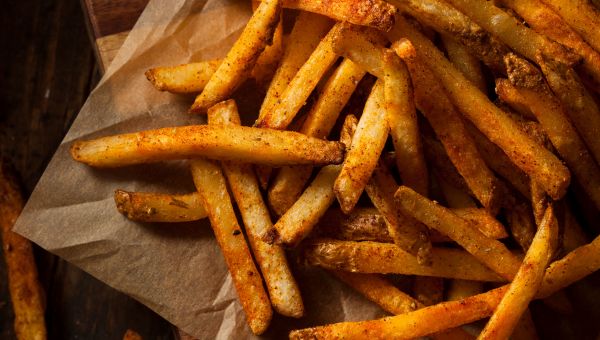
High-fat foods
We know fatty foods like french fries and red meat aren't the best for our bodies, and they might even worsen heartburn for some.
Firstly, high-fat foods take longer to digest than some other eats, so they sit longer in your stomach. This extended process leaves more time for reflux.
Fatty foods also tend to be high in calories, too many of which can increase your risk for becoming overweight or obese. Extra weight is a leading risk factor for acid reflux. "If [extra weight] pushes on the stomach, it pushes the acid up," Dr. Mittal says. "It's almost like squeezing the stomach and sending that acid up into the esophagus."
If you experience discomfort after scarfing down a fatty meal, give these fat-slashing methods a try.
- Reach for low-fat dairy products, like cheese, yogurt and milk.
- Choose lean cuts of meat, like skinless chicken or turkey breast.
- Say "no" to fried foods.
Some simple tips can help you avoid reflux, outside of the kitchen, too. Heartburn typically worsens when lying down, so try propping your head up with an extra pillow or avoid eating 2 or 3 hours before bedtime.
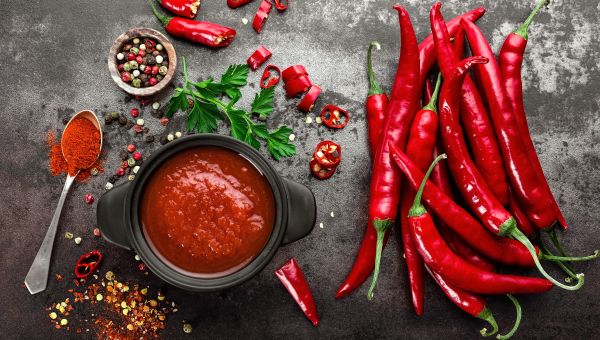
Spicy foods
Spicy foods, like horseradish, kimchi and good ole chili peppers, aren't for everybody. And those who experience heartburn especially—and think it may be worsened by peppery cuisine—may want to avoid eating it.
Research has not yet linked spicy foods and faulty sphincter function, but experts may still recommend avoiding these foods in the event they cause you discomfort. There's some good news however: if spicy brown mustard and sriracha don’t bother you, there's no reason to cut them out of your diet.
If spice doesn't agree with you, try seasoning your food with herbs, like thyme, basil and dill and a sprinkle of sweet and smoky paprika.

Dairy
For some, dairy products, like milk, cheese and yogurt can worsen acid reflux. The high fat content of many dairy products may be to blame—both whole milk and full-fat yogurt contain about 8 grams of fat per 8 ounces. The longer digestion process may increase your risk for acid reflux.
Additionally, calcium-rich eats, like milk and yogurt, may be linked to a higher risk for reflux esophagitis, according to 2013 research out of China. Reflux esophagitis is inflammation that can damage the esophagus, causing pain and difficulty swallowing. "Rich foods can cause damage to the esophagus when they reflux up," Dr. Mittal says.
Although a milk allergy doesn't cause or worsen acid reflux, other symptoms can trigger heartburn. Speak with your doctor about getting tested for an allergy or intolerance, which are not one in the same. Allergies involve the immune system, and intolerances involve the digestive system.
Your healthcare provider can help find the best ways to reduce dairy-related heartburn, which may include avoiding dairy products altogether. Fear not, there are plant-based substitutes for milk, yogurt and cheese.

Alcohol
Alcohol affects your entire body, and when consumed in excess, can have some seriously detrimental effects. Excessive drinking, defined as drinking while pregnant or under the age of 21, consuming four or five drinks on a single occasion or sipping eight or more weekly drinks as a woman or 15 or more weekly drinks as a man, can increase your risk for cancer, brain damage and kidney disease.
A night of drinking, or even a single cocktail, can cause some uncomfortable short-term consequences, too. Alcohol is a depressant, meaning it slows down the body's processes, and in some cases, the esophageal sphincter can be affected.
When the sphincter is slow to close, the stomach contents can find their way into the esophagus, causing heartburn. If you suspect your weekend cocktails could be causing you discomfort, skip the booze and try pouring a tasty mocktail.
More On


video
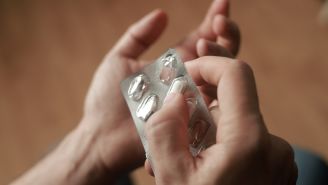
article


video


video


video
